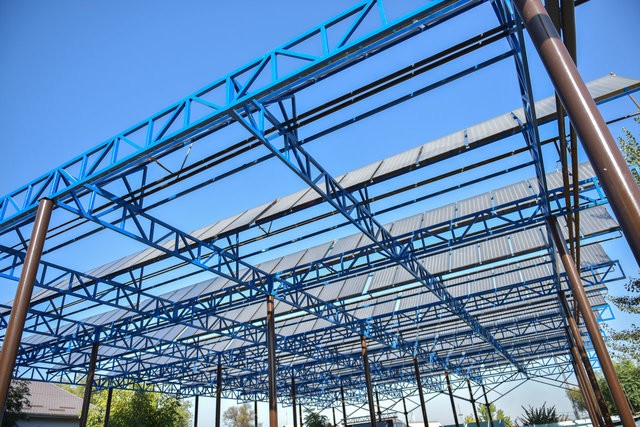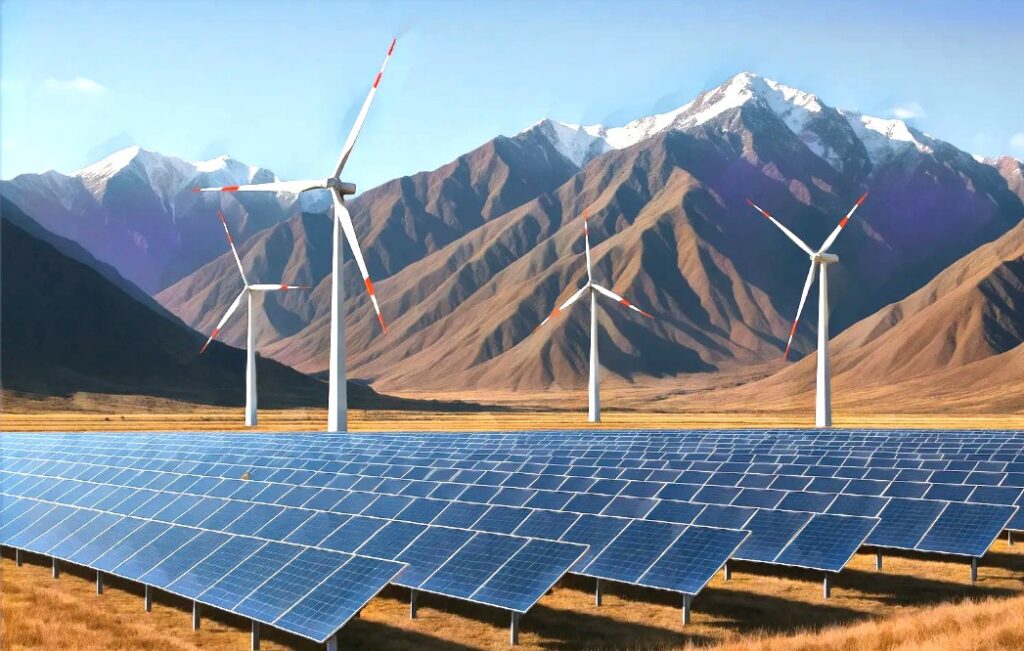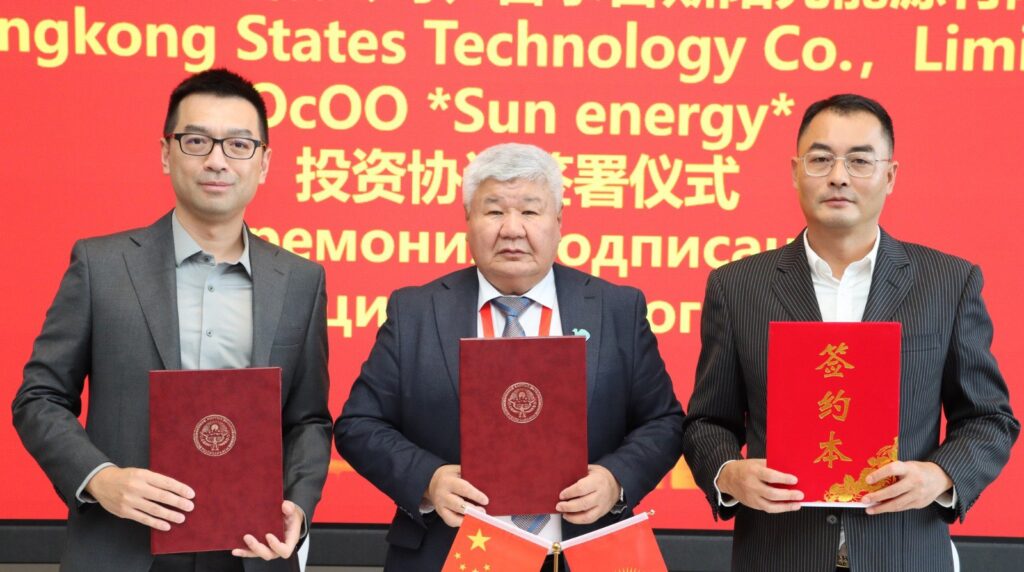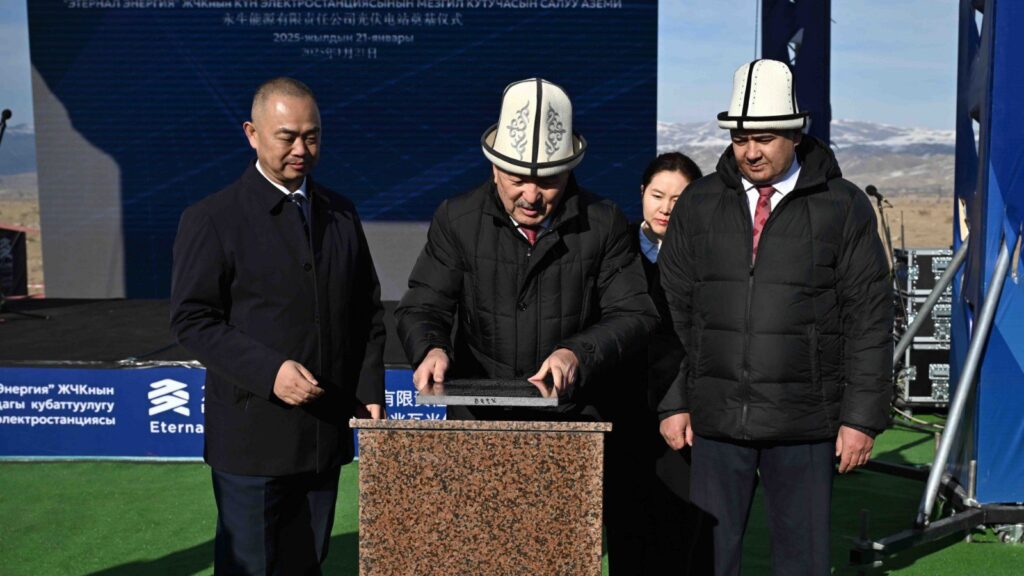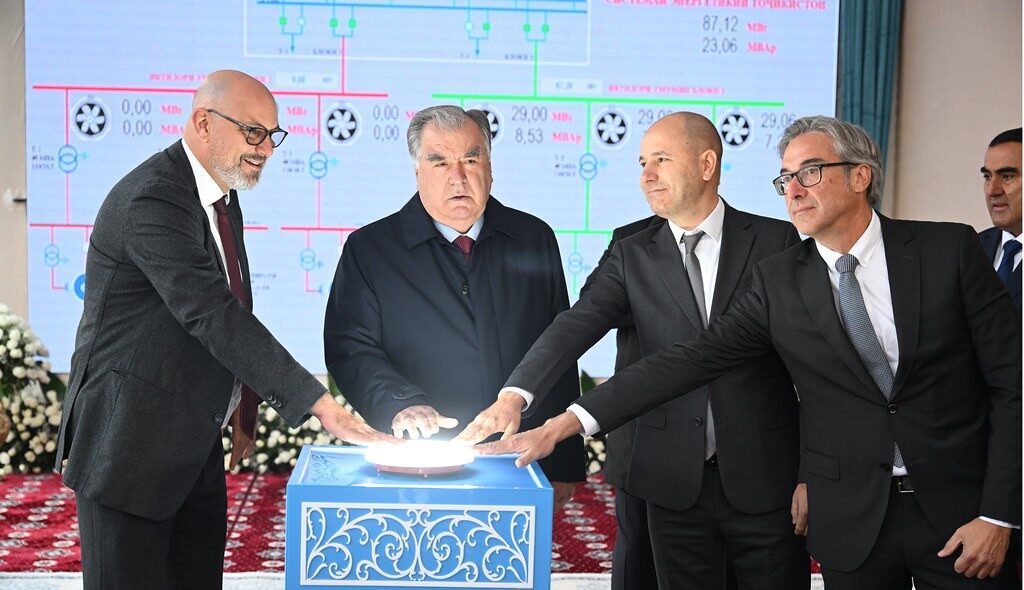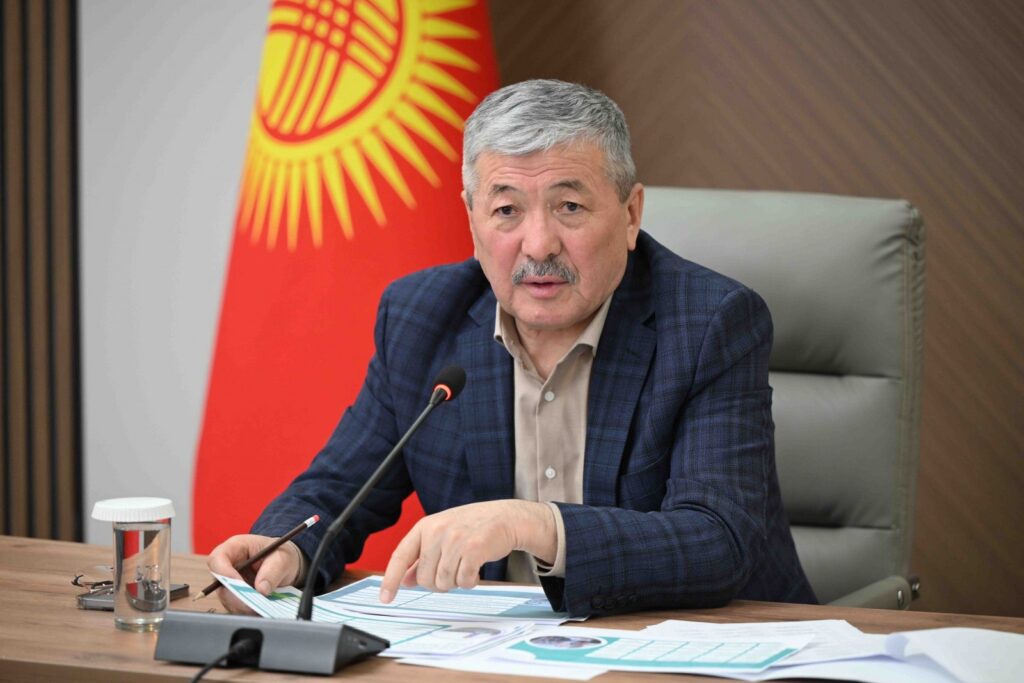BISHKEK (TCA) — The future belongs to renewable energy sources because they are economically beneficial and environmentally friendly, Deputy Prime Minister of Kyrgyzstan Duishenbek Zilaliyev said on September 22 at the launching ceremony of a project to introduce flat solar collectors at the site of Bishkekteploenergo public utility company.
“The current power sector is more than 80% based on the use of non-renewable energy sources including oil, gas and coal. Given the decline in the world’s fossil fuel reserves and the need to ensure energy independence in the future, the trend towards increasing the use of renewable energy sources (RES) is growing all over the world. The annual global increase in solar energy has reached about 50% over the past five years. Thanks to the favorable geographical position and climatic conditions, our country has an impressive potential of solar energy,” he said.
According to forecasts, solar energy will become commercially viable in the next ten years, and in the future, it will surpass traditional energy by the volume of energy received.
First RES project
The Government of Kyrgyzstan intends to continue supporting renewable energy projects. The first project, the Gagarin boiler room in Bishkek, operating on solar collectors, will serve as a starting point for switching all the other boiler rooms to renewable energy sources, Zilaliyev said.
At the Gagarin boiler room, 364 solar collectors have been installed with a total capacity of 0.518 MW or 0.445 Gcal/h. It will help save 124.8 thousand cubic meters of natural gas a year. The solar collectors will pay off in four years, the Bishkek city administration said.
It is planned to install additional solar collectors in the boiler room in Orto-Sai village near Bishkek. To implement the project, the Environmental Protection Fund of Kyrgyzstan allocated 10.6 million soms on co-financing terms. The total cost of the project is 14.8 million soms.
The Bishkek city administration plans to install solar collectors at 64 boiler rooms in Bishkek, Mayor Albek Ibraimov said.
Solar collectors should be used for heating water at Issyk-Kul resorts in summer, the mayor added.
“We have currently to order components for the collectors abroad but they can be produced in Kyrgyzstan if their consumption grows,” Ibraimov said.
Favorable conditions
In Kyrgyzstan, renewable energy sources account for less than 1% of the total power generation, though the country occupies one of the leading places among the CIS countries in terms of solar energy potential.
The country has all conditions for using solar collectors, because 320 days a year are sunny here. The annual amount of solar radiation on a horizontal surface is 1000-1700 kWh per square meter, and more than 50% is direct solar radiation.
On average, solar energy in the country is equivalent to 670 million tons of standard fuel per year.
There are no large solar stations in Kyrgyzstan so far. Small photovoltaic panels are used mainly in small enterprises and households. At 19 rural first-aid points, photovoltaic stations (3 kW and 1.5 kW) were installed within the project of the UNDP and WHO.
There are also other RES including wind power with 44.6 million kWh resources, small rivers (8 billion kWh), and biomass (1.3 billion kWh). By processing biomass, the country can get about 1.6 billion cubic meters of combustible methane gas annually.
The RES potential can replace up to 51% of the energy consumed, and 20% is technically feasible, experts say. There is a risk of electric power shortage (due to low water availability) of about one billion kilowatt hours a year.
Barriers to RES use
Introduction of RES in Kyrgyzstan is hampered by the imperfect legislation regulating the RES use, a lack of highly qualified specialists, financial barriers (poor financial support mechanisms), and poor knowledge about the benefits of RES use among the population and government agencies.
The regulatory legal framework is not adapted to the market conditions, and legal documents often lack mechanisms for their use.
To increase the investment attractiveness of RES for domestic and foreign investors, a bill to amend the law on the renewable energy sources was drafted last year, but it has not been approved by the Parliament so far.
The bill proposes establishing a grace period for projects on the use of renewable energy for ten years and exempting producers of electricity, heat and gas from RES from taxes for five years from the start of getting profit.
